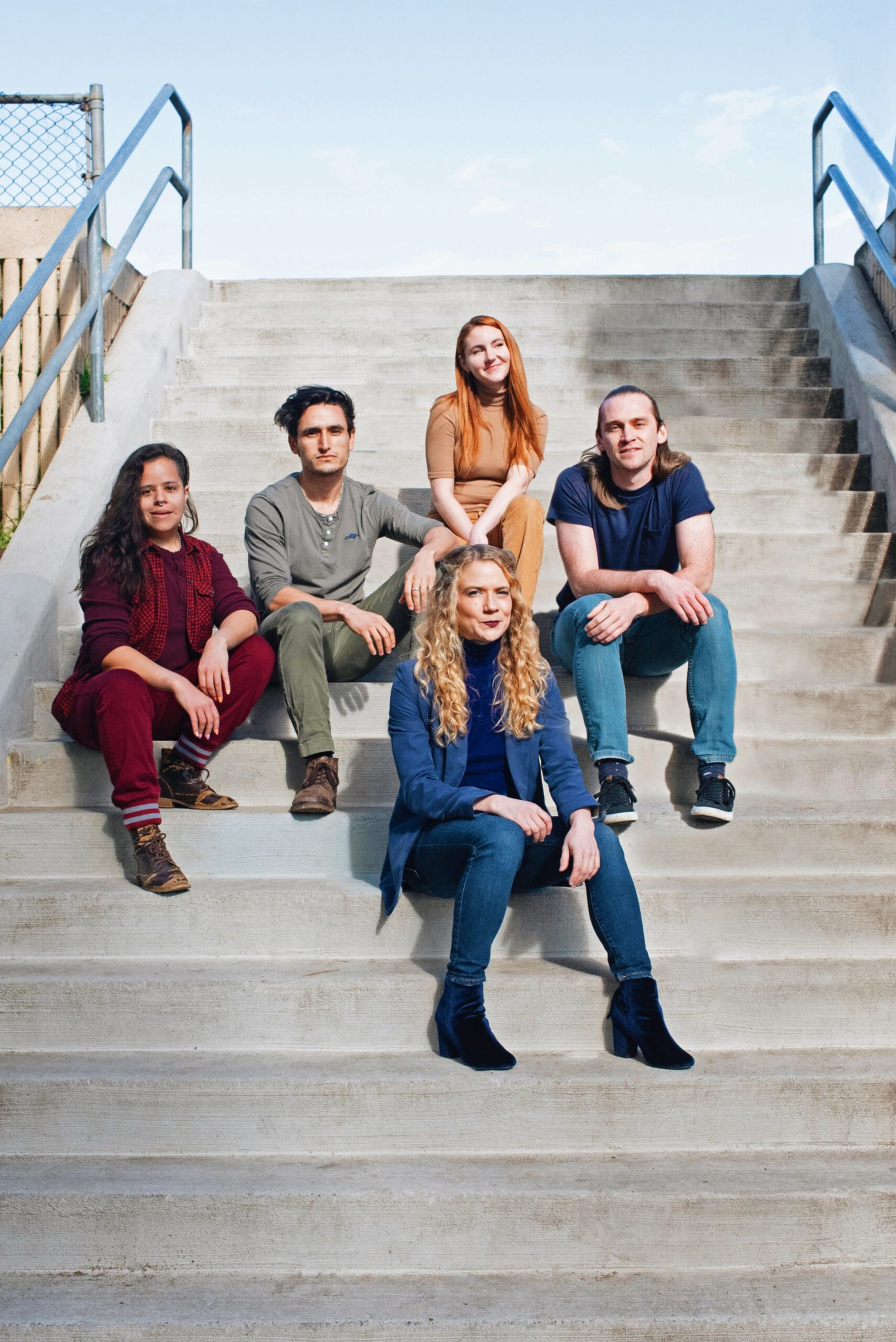“Did you… cum?”
That’s not an unfamiliar question in many boudoirs as men and women tumble in the dark to pleasure their partners.
And for many women, the answer (if it’s answered truthfully at all) is a resounding “no.” According to a recent study (opens in new tab) from the official publication of the International Academy of Sex Research, the orgasm rate for women having sex with men is around 63% compared to 85% for men (both gay and straight).
It’s called the orgasm gap (opens in new tab), and that chasm is the focus of Oakland-based singer-songwriter Rachel Lark’s new pop-rock musical at Z Space, Coming Soon (opens in new tab).
At the heart of the show is a missing big O: Maggie (played by Lark) is in love with Mark but has been faking her orgasms with him for the entirety of their eight-year relationship—a not uncommon experience for women, Lark notes; various surveys and studies say women fake it between 17% (opens in new tab) and 80% (opens in new tab) of the time. When Maggie finally comes clean, she—along with the help of her two inner voices—goes on a whimsical sexual journey to understand why she’s been faking it, discover what gets her off, “and hopefully have an orgasm by the end of the show,” says Lark.

An amalgam of playful, witty, raunchy and emotionally raw songs, some already released on Spotify as teasers for the show (opens in new tab), take audiences through Maggie’s explorations of kink (opens in new tab), queerness, vibrators and threesomes. While Maggie’s journey is often hilarious, Lark hopes the musical shows how polyamory and kink have something to offer everyone.
For instance, “talking frankly about your boundaries and your desires, communicating consent, safe words,” says Lark, “should be good practice for anybody, no matter what kind of sex you’re having.”
But the musical is not simply about chasing pleasure. Taking darker turns to tackle the anxiety and distress of sexual trauma, it also explores the “invisible ways” in which the “forces of rape culture and sexism and misogyny… play into all of our lives,” says Lark, who started writing the show about five years ago at the height of the #MeToo movement. The musical’s digital program contains a content advisory about the show’s references to sexual assault and offers grounding exercises if “the content triggers any feelings of discomfort or dissociation.” Leaving the theater if you’re uncomfortable or distressed by one of these references is also OK. An usher will reseat you after the end of a song.
“I was really encouraged by all the discourse I’d seen, but I also felt like it wasn’t zooming out far enough,” said Lark of the #MeToo movement. “There was a lot of focus on individual wrongdoers, and I felt like not enough focus on the water that we swim in.”
In Coming Soon, #MeToo doesn’t just manifest in the shadowy figure of a perpetrator but also between the bed sheets of awkward, bad sex and the unrealistic expectations and miscommunications that lead to it.
For instance, Maggie’s partner Mark, earnest and loving though he is, wants to make Maggie climax in a particular way—with him on top, kissing her neck and stroking her hair—but he doesn’t take into account her preferences. Maggie, socialized by society to be polite, is afraid to burst the bubble of her “fragile guy” and his ego.

“I hope that my work can serve as a cultural reference point for having conversations inside our own relationships,” Lark said, about “the way that sexism plays out on an individual level, as well as talking about broader societal issues.”
The show’s director Rachel Dart, also a sex educator and founder of the anti-sexual harassment advocacy group for theater professionals, Let Us Work (opens in new tab), believes that Coming Soon pushes the needle forward on the #MeToo conversation by centering the desires, wants and needs of women.
“If we create a world where women can prioritize themselves sexually then that is also, to me, going to end up being a world where women feel like they can prioritize themselves and deserve better everywhere else outside the bedroom,” Dart said.
She hopes that Lark’s musical can help close the pleasure gap by demystifying the female orgasm and giving those with vaginas the courage to ask for what they want. Dart hopes to dispel the myth that the female orgasm is both overly complex and—conversely—achieved quickly through a “beautiful, wordless encounter” as it is so often portrayed on screen.
“We have to really debunk that myth that good sex means sex where nobody talks to each other,” said Dart. “The show encourages communicating with your partner, and it encourages self-knowledge also.”
You’ll have to see the show to find out whether Maggie finally attains sexual bliss, but Lark hopes audiences can walk away having an enlightened sex ed experience.
“I would love for people to leave the show with tools and anecdotes that allow them to communicate about their sex lives,” said Lark.
